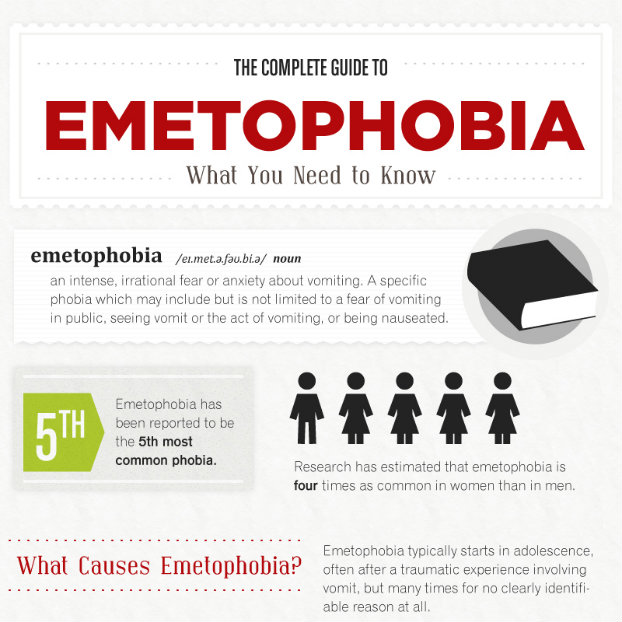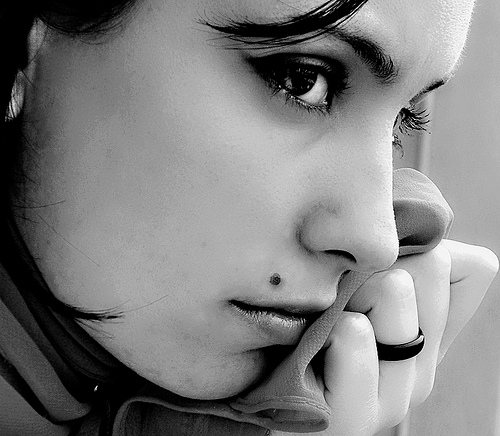 From the time we are children, we all experience fear. In our youth we tend to fear things that are unrealistic: monsters, ghosts, even being humiliated in front of all our peers. As we get older, we start to worry about things like mortgages, illness, and failure. This is normal for most people.
From the time we are children, we all experience fear. In our youth we tend to fear things that are unrealistic: monsters, ghosts, even being humiliated in front of all our peers. As we get older, we start to worry about things like mortgages, illness, and failure. This is normal for most people.
So how do you know if your fear has started to take over your life?
Phobias in Adults
A phobia is defined as an excessive or unreasonable fear that interferes with your ability to live a healthy lifestyle. For instance, if your fear of spiders is so strong that you are unable to sleep at night, you may have a phobia (arachnophobia, to be specific).
Emetophobia, the fear of vomiting, seems very limited. But it can affect many areas of your life. This is because when you have emetophobia, you become overly preoccupied with situations and factors that can lead to vomiting or being around someone else who is sick. Basic activities like taking public transportation, flying on a plane, and going to a bar or a party can seem out of reach to you when you have emetophobia. Your work life and your personal life can be negatively when a phobia grows too big for you to handle.
Phobias in Children
As mentioned before, childhood fears are normal. However, children are susceptible to developing phobias, too. This means parents have to be aware of what a phobia looks like in a child.
Common childhood phobias include fear of the dark, fear of going to school, and fear of being separated from a loved one (separation anxiety). These phobias can become troublesome if the child does not outgrow them by a certain age. A child experiencing normal fear should not be exhibiting physical signs of anxiety such as being sick to his or her stomach. An older child should not grow inconsolably upset by going to school or being separated from parents for a short time. A younger child should eventually learn to deal with these situations normally.
What Can You Do?
If you suspect that you, your child, or your loved one may be suffering from a phobia, the best option is to seek a professional opinion. A licensed mental health worker can assess symptoms and behaviors and determine whether the fear has become a phobia. Once this is done, he or she can recommend a treatment that can help to alleviate the symptoms or cure the phobia entirely.
Photo Credit: rachel sian via Compfight cc





